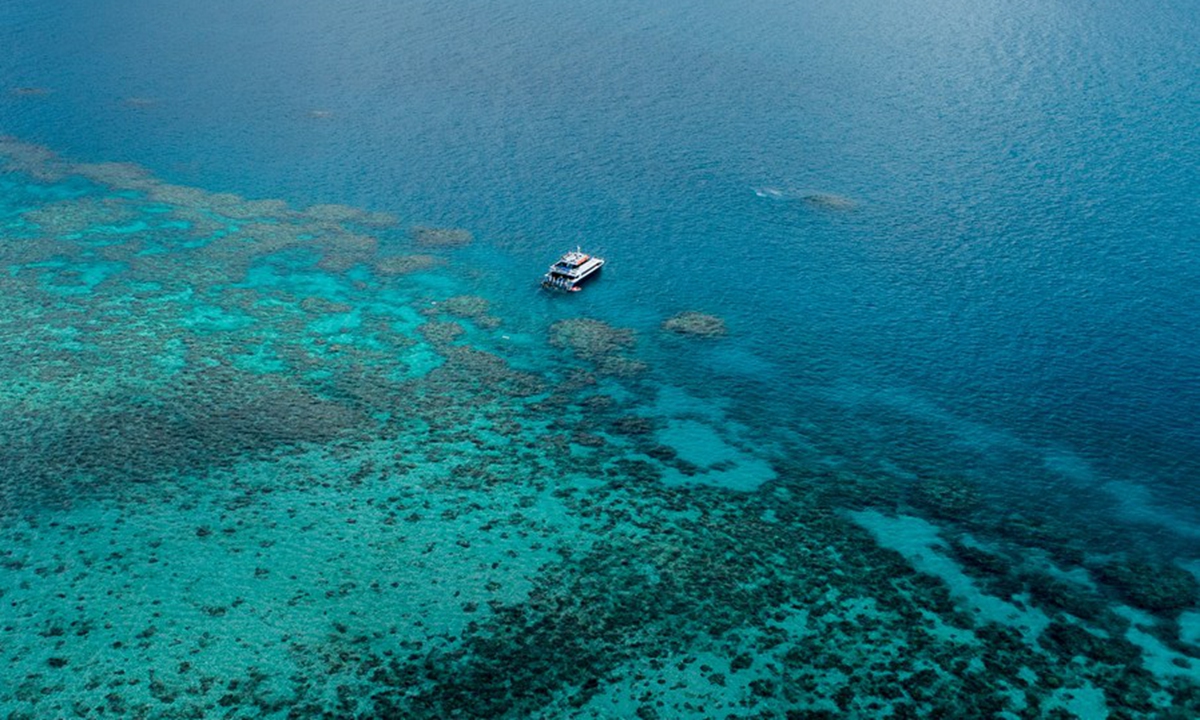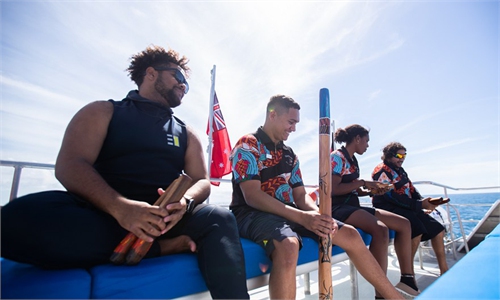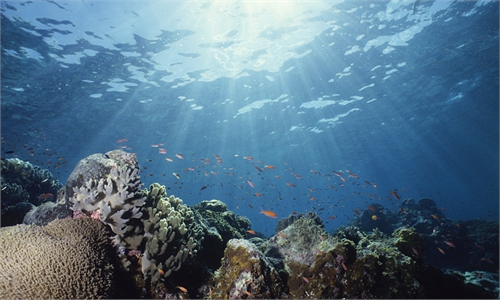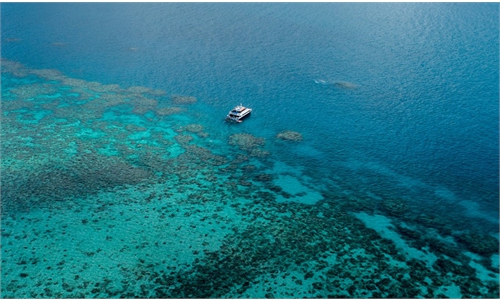Heritage status of Great Barrier Reef at risk

Aerial photo taken on June 2, 2021 shows the Great Barrier Reef in Queensland, Australia. The Great Barrier Reef, the world's largest coral reef in Australia's state of Queensland, is described as the "planet's most beautiful marine environment" and is the main conservation target of the Citizens of the Great Barrier Reef, a charity cooperative organization that runs a series of preserving programs. (Photo by Hu Jingchen/Xinhua)
After years of climate-worsened damage to its vibrant coral, Australia's vast Great Barrier Reef could this week be added to UNESCO's list of endangered World Heritage sites.
Along with six other sites globally that are grappling with issues like ecological damage, overdevelopment, overtourism or security concerns, the reef''s fate is being considered at a meeting in China, with a decision on the listing likely to be announced on Friday.
There are more than 1,100 UNESCO World Heritage sites worldwide recognized for their "outstanding universal value" and natural or cultural importance.
The Great Barrier Reef, the world's largest living structure and visible from space, was added to the list in 1981 for its "superlative natural beauty" and extensive biodiversity.
But the list is not permanently fixed and sites can be downgraded or even deleted entirely on the UN body's recommendation.
While placement on the "in-danger" list is not considered a sanction - some nations have their sites added to gain international attention to help save them - others see it as a dishonor.
The reef has suffered three mass coral bleaching events in the past five years, by some measures losing half its coral reefs since 1995 as ocean temperatures have climbed.
It has also been battered by several cyclones, as climate change drives more extreme weather, and outbreaks of crown-of-thorns starfish which eat the coral.
"It's a warning to the international community and all of humanity that the coral ecosystem is in danger," Fanny Douvere, head of UNESCO's World Heritage marine program, said in June.
Australian government scientists say the corals have made a comeback over the past year, but acknowledge that will not improve the ecosystem's "very poor" long-term outlook.
There are fears that an "in danger" listing could dent the massive global appeal of the reef, the glittering jewel in Australia's tourism crown.
The ecosystem, which is 2,300 kilometers long, was worth an estimated $4.8 billion a year in tourism revenue for the Australian economy before the pandemic.
Australia launched a last-minute lobbying effort to avoid the downgrade, sending the country's environment minister to Paris to meet World Heritage Committee members and taking key ambassadors on a reef snorkeling trip.
The committee is currently made up of 21 member states, including China, Russia and Australia itself, who will vote on the UN cultural agency's recommendation.
This is not the first time the UN has threatened to downgrade the reef's World Heritage listing.
The country has created a "Reef 2050" plan and has poured billions of dollars into reef protection, including water quality improvements, in part to address the concerns.
AFP



